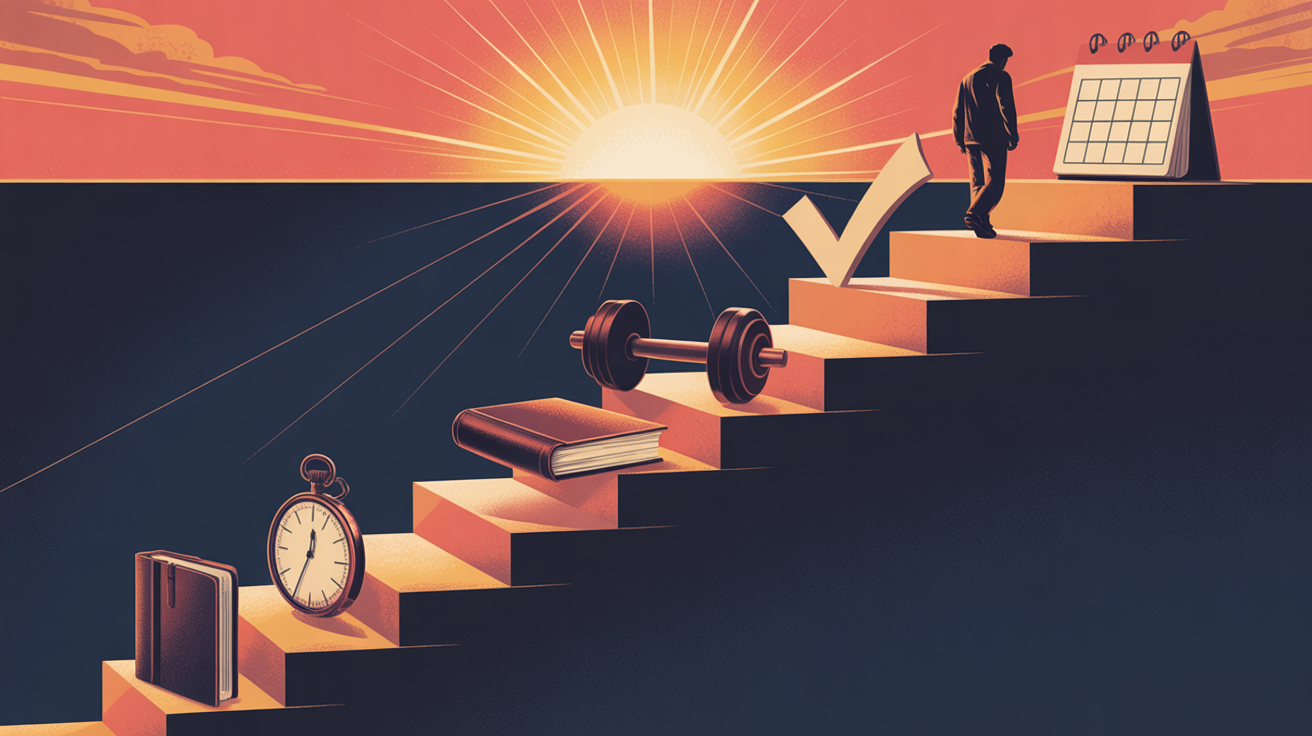
10 Questions to Ask When You Feel Lost (And Need Clarity Fast)
That familiar feeling creeps in again—you’re staring at your life like a puzzle with missing pieces, wondering how you got here and where you’re supposed to go next. Maybe it’s Sunday evening and the week ahead feels overwhelming. Maybe you’re at a career crossroads, or your relationships feel off-kilter, or you’re simply drowning in too many choices and not enough direction.
If you’re feeling lost right now, you’re not alone. Research shows that 75% of people experience periods of feeling directionless or unclear about their path. The good news? You don’t need months of therapy or a spiritual retreat to find your way back to clarity. Sometimes, the right questions can cut through the fog faster than you ever imagined.
What Does It Mean to Feel “Lost”?
Feeling lost isn’t just about not knowing what to do next. It’s that deeper sense of disconnection from your purpose, values, or authentic self. Psychologists describe it as a state of “existential confusion”—when the gap between where you are and where you want to be feels impossibly wide.
Dr. Viktor Frankl, a Holocaust survivor and renowned psychiatrist, observed that humans can endure almost anything if they have a sense of meaning and direction. When that sense disappears, even small decisions can feel overwhelming. You might find yourself scrolling through social media for hours, avoiding important conversations, or feeling paralyzed by seemingly simple choices.
This state often emerges during major life transitions—job changes, relationship shifts, health challenges, or even positive events like graduations or promotions. Your old identity or routine no longer fits, but you haven’t yet discovered what comes next.
Types of “Lostness” You Might Experience
Career Confusion: You’re successful on paper but feel empty inside, or you know your current job isn’t right but can’t see alternatives clearly.
Relationship Uncertainty: Your connections feel superficial or draining, but you’re not sure how to create the deeper relationships you crave.
Life Purpose Fog: You’re going through the motions but can’t remember why any of it matters or what you’re working toward.
Decision Paralysis: You have too many options and can’t choose, or you keep second-guessing every choice you make.
Identity Crisis: Major life changes have left you wondering who you are when your old roles or labels no longer apply.
Each type requires slightly different approaches, but the power of good questions remains constant across all of them.
Why Feeling Lost Actually Matters
While uncomfortable, feeling lost serves important psychological functions that we often overlook in our rush to “fix” the feeling.
It Signals Growth: Confusion often precedes breakthrough. When you outgrow your current situation, feeling lost is your psyche’s way of saying it’s time for something new.
It Builds Resilience: Learning to navigate uncertainty strengthens your ability to handle future challenges with confidence rather than panic.
It Clarifies Values: When everything feels unclear, what matters most to you often becomes crystal clear by contrast.
It Sparks Creativity: Uncertainty opens your mind to possibilities you might never have considered when you felt certain about your path.
It Deepens Self-Knowledge: These periods force you to examine your assumptions, desires, and motivations more honestly than you might during stable times.
Common Traps That Keep You Stuck
Before diving into the questions that create clarity, it’s important to recognize the mental patterns that often keep people stuck in confusion longer than necessary.
The Perfectionism Trap: Waiting for the “perfect” answer or path before taking any action. In reality, clarity often emerges through movement, not contemplation alone.
The Comparison Quicksand: Constantly measuring your journey against others’ highlight reels on social media or in conversation. Everyone’s path is different, and comparison usually generates more confusion, not less.
The Analysis Paralysis: Over-thinking every angle without ever taking action. While reflection is valuable, endless analysis without experimentation rarely leads to breakthrough insights.
The External Validation Dependency: Looking to others to tell you what you should want or do instead of tuning into your own inner wisdom and desires.
The Binary Thinking Trap: Believing you must choose between extreme options (stay or go, love or leave, succeed or fail) instead of recognizing the spectrum of possibilities available.
Powerful Tools for Getting Unstuck
Beyond questions, several evidence-based approaches can accelerate your journey back to clarity:
The Minimum Viable Action: Instead of waiting for complete clarity, identify the smallest possible step you can take in any promising direction. Action creates information, and information creates clarity.
Values Clarification Exercises: When you’re clear about what matters most to you, decisions become much simpler. Many people feel lost because they’ve never explicitly identified their core values.
The 10-10-10 Rule: For any decision, ask how you’ll feel about each option in 10 minutes, 10 months, and 10 years. This helps balance immediate emotions with long-term consequences.
Mindfulness and Meditation: Regular practice helps you distinguish between your authentic inner voice and the noise of anxiety, social pressure, or old conditioning.
Journaling Prompts: Writing helps externalize your thoughts and often reveals patterns or insights that remain hidden when everything stays in your head.
Seeking Perspective: Sometimes an outside view from trusted friends, mentors, or professionals can illuminate blind spots you can’t see from inside your own experience.
10 Questions to Ask When You Feel Lost
1. What Would I Do If I Knew I Couldn’t Fail?
This classic question bypasses fear and perfectionism to reveal your authentic desires. Often, we’re not actually confused about what we want—we’re scared of wanting it. When you remove the possibility of failure from the equation, what emerges? That’s usually pointing toward your true north, even if the path seems challenging.
Write down whatever comes up, no matter how impractical it seems. You’re not committing to anything yet—you’re just gathering information about what your heart actually wants.
2. What Am I Pretending Not to Know?
This question cuts through self-deception faster than almost anything else. Deep down, you often know more than you’re admitting to yourself. Maybe you know your relationship isn’t working, or your job is slowly killing your soul, or you need to have that difficult conversation you’ve been avoiding.
The answer might be uncomfortable, but it’s often the key to your next step forward.
3. When Do I Feel Most Alive and Energized?
Pay attention to the activities, conversations, and environments that naturally energize you rather than drain you. These moments offer clues about your strengths, interests, and values that can guide your direction.
Think beyond just career—consider all areas of life. Maybe you come alive when you’re solving problems, creating something beautiful, helping others, or learning new skills.
4. What Would My 80-Year-Old Self Advise Me?
This question provides instant perspective on what truly matters. Your future self has the benefit of hindsight and the wisdom that comes from surviving whatever you’re currently facing.
Imagine sitting with this older, wiser version of yourself. What would they tell you about your current situation? What would they encourage you to prioritize or let go of?
5. What Small Experiment Could I Try This Week?
Instead of trying to figure out your entire life path, focus on one small experiment you could conduct in the next seven days. If you’re considering a career change, could you have coffee with someone in that field? If you’re thinking about a relationship change, could you try one new way of communicating?
Small experiments generate real-world data without requiring major commitments.
6. What Am I Avoiding, and Why?
Often, the thing we’re most avoiding is exactly what we need to address to move forward. Maybe it’s a difficult conversation, a scary decision, or an uncomfortable truth about ourselves or our situation.
Identify what you’ve been avoiding, then ask yourself: “What’s the worst that could realistically happen if I faced this?” Usually, the anticipation is worse than the reality.
7. If Money Weren’t a Factor, How Would I Spend My Time?
This question helps separate your authentic interests from external pressures or practical limitations. While you can’t ignore financial realities, understanding what you’d choose in a resource-unlimited world reveals important information about your values and passions.
You might be surprised by what emerges—maybe it’s not a complete career change but a shift in how you spend your free time or approach your current work.
8. What Patterns Keep Showing Up in My Life?
Look for recurring themes in your relationships, work situations, or personal challenges. These patterns often point to deeper needs, unresolved issues, or growth areas that demand attention.
Maybe you repeatedly end up in jobs where you feel undervalued, or you keep attracting friends who take more than they give. These patterns are information, not judgments.
9. What Would I Regret Not Trying?
Regret research shows that people most often regret the things they didn’t do rather than the things they did. This question helps you identify what’s truly important enough to pursue despite uncertainty or risk.
Think about yourself in five years. What opportunities or experiences would you regret not exploring while you had the chance?
10. Who Am I When I’m Not Trying to Please Anyone?
Much of our confusion comes from trying to meet others’ expectations rather than honoring our own needs and desires. This question helps you separate your authentic self from the roles you play or the image you try to maintain.
Strip away the need to be seen as successful, responsible, agreeable, or whatever other identity you’ve been carrying. What remains? That’s usually closer to your true self than you might expect.
Moving from Questions to Action
These questions are powerful, but they’re only as valuable as the actions they inspire. After working through them, you’ll likely have some insights about your next steps. The key is to start with the smallest possible action rather than waiting for complete clarity.
Maybe you don’t know exactly what career you want, but you know you want more creativity in your work. Could you start a side project this weekend? Maybe you’re not sure about a relationship, but you know you need better communication. Could you try one new approach to difficult conversations this week?
Clarity emerges through movement, not just contemplation. Each small step provides new information that helps you adjust course and take the next step with more confidence.
Your Path Forward
Feeling lost isn’t a character flaw or a sign that something is wrong with you. It’s a normal part of the human experience, especially during times of growth and change. The questions in this guide are designed to help you reconnect with your inner wisdom and authentic desires, even when everything feels uncertain.
Remember that clarity isn’t a destination you reach once and stay at forever. It’s an ongoing practice of checking in with yourself, adjusting course when needed, and staying connected to what matters most to you.
Choose one or two questions that resonate most strongly with you right now. Spend some quiet time with them—maybe journal about them or discuss them with someone you trust. Then identify one small action you can take based on what emerges.
You don’t need to have all the answers today. You just need to take one step in a direction that feels aligned with who you’re becoming. Trust that each step will reveal the next one, and clarity will emerge as you move forward with intention and courage.








